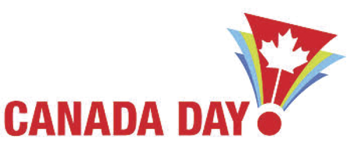
BY RYAN EHRENWORTH
Cheap American beer. Red and white flags made in China. The ever present risk of a firework accident. Hidden amongst the gimmicks, Canada Day is still the exuberant celebration of rowdy Canucks - albeit the change of circumstance.
Nearly two centuries, six provinces and two territories later, Canada Day is still a day of great importance to Canadians. The first true holiday of the summer, Canadians of all shapes and sizes flock to the great Canadian monuments - particularly our patios - to celebrate but another wonderful summer day.
And while it’s hard to discourage a sun-drenched Canadian from cracking a cold Mexican beer and garnishing it with a lime grown in Florida, it’s important for each and every one of us to take a moment to reflect on the true essence of Canada Day and why we should be proud of being Canadian.
For our ancestors of the 19th century, a united Canada seemed but a pipe dream. After several attempts to create a unified Nation under the British dominion, particularly at Charlottetown and Quebec, many felt Canada was more likely to be a divided territory like Europe, than a unified confederacy like the United States.
However, in the aftermath of the US civil war which pitted a nation against itself, the risk of US invasion under the doctrine of manifest destiny and the growing interest in statehood following the industrial revolution as well as the perpetual nationalism such events created, a united Canada seemed a worthwhile enterprise.
Confederation of Canada itself was still a difficult task. The unification of the four very different founding partners - Quebec, Ontario, Nova Scotia and New Brunswick - was continually hampered by differences in language, economics and political loyalties. Furthermore, all decisions on confederation were subject to approval by the British crown. And it was particularly weary and disinterested in confederation. Had it not been for the enlightened, never say die efforts of our founding fathers, mainly John A. Macdonald, Hewitt Bernard and George Etienne Cartier, Canada would likely be no nation at all.
For a period of three years, which included the near creation of a strictly maritime union in Eastern Canada, our fathers debated and discussed confederation. And after many, many failures, Canada unified under the British North America Act in 1867. Such was a truly remarkable feat considering the differences of the four regions and several stalemates in negotiations.
More provinces were to follow: Manitoba and the Northwest Territories would join confederacy in 1870, British Columbia in 1871, PEI in 1873, Yukon in 1898, Saskatchewan and Alberta in 1905, Newfoundland in 1949, and finally Nunavut in 1999. From its beginnings in 1867, Canada was not the Canada we know today until over 100 years later.
So while you, as Canadians, rejoice in the day off work, remember the hard to do efforts of our founding fathers and remember how privileged you are to live in this nation of great prosperity, justice and equality.

















